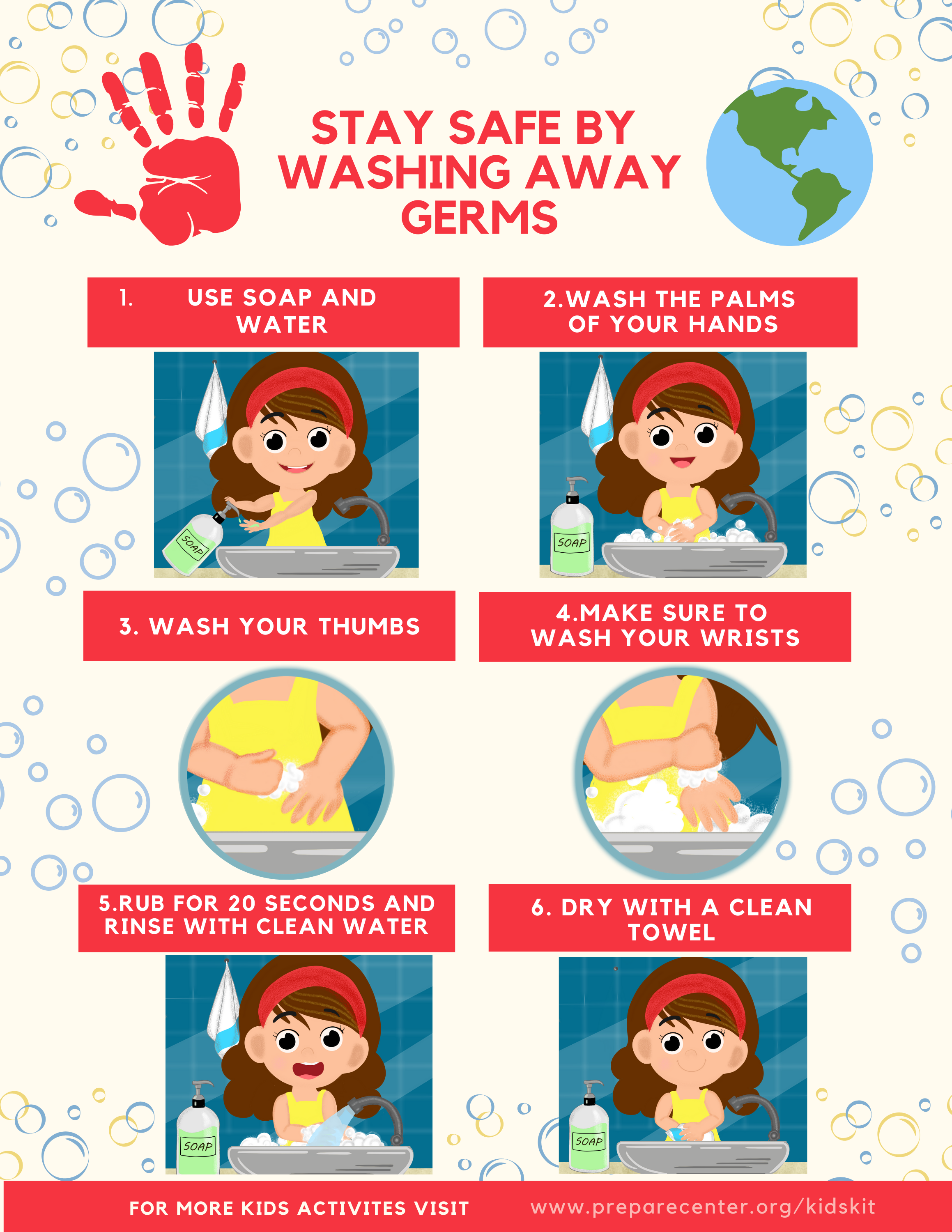Game
How To Wash Your Hands

Washing your hands and encouraging everyone around you to do the same can help stop the spread of germs and keep you healthy.
When you wash your hands, you wash away germs. If you don’t wash your hands, germs can get into your body and make you sick.
When you should wash your hands
-
Before you touch your eyes, nose or mouth
-
Before you eat or touch food
-
After sneezing or coughing
-
After going to the bathroom
-
After petting or playing with an animal
Here is how to do it right!
